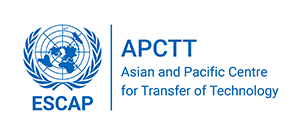Carbon-neutral Power Generation
The demand for sustainable energy is growing all the time. Wärtsilä's liquid biofuel power plants, based on high-efficiency reciprocating diesel engines, offer an excellent form of distributed power generation meeting many of today's and tomorrow's expectations in terms of sustainability. World energy demand is increasing steadily, at around 2% a year, driven to a large extent by the rapidly growing economies of the world's developing countries. Parallel to this development, agreements such as the Kyoto Protocol, together with concerns about the environment generally, are seeing increasing calls being made for greater efforts to be devoted to mitigating greenhouse gas emissions. Wärtsilä power plants fired on liquid biofuels offer a very useful solution in this respect, with practically zero greenhouse gas emissions. Based around the company's renowned medium-speed reciprocating diesel prime movers, these plants can generate electricity at high levels of efficiency – thanks to work that Wärtsilä has carried out on developing technologies for optimising fuel treatment, fuel feeding, and fuel injection with liquid biofuels over the last 10 years. A pilot plant was commissioned in Karlburg in Germany in 2003, featuring a 2.6 MW Wärtsilä 6L32 prime mover, and the company expects to see some 180 MW of this type of Wärtsilä-based capacity in operation in Europe by the end of 2007. Wärtsilä's plant concept is based on using vegetable oil, typically soy oil, palm oil, rapeseed oil, or sunflower oil. The most attractive commercial liquid biofuel today is crude palm oil, due to its good availability and relatively attractive price, which is only some 30% more expensive than heavy fuel oil, taking into account its lower heating value To minimise the lifecycle impact on greenhouse gas emissions, Wärtsilä's liquid biofuel power plants are designed to operate on clarified crude vegetable oils, which can be extracted using relatively simple, low-energy methods, thereby keeping associated CO2 emissions low. Sulphur emissions are not an issue, as vegetable oils do not contain significant amounts of sulphur compared to fossil fuels, eliminating the need for SO2 abatement, which is both expensive and technically demanding. NOx emission levels vary, depending on the liquid biofuel in question, and are generally similar to those associated with reciprocating diesel engine applications using heavy fuel oil. Selective catalytic reduction (SCR) technologies enable 90% of NOx emissions to be eliminated from exhaust gases. Wärtsilä offers liquid biofuel-based power plants capable of generating anything from 1 MW to 300 MW, using Wärtsilä 20 – the Wärtsilä 20V32 is seen here – Wärtsilä 32, and Wärtsilä 46 prime movers. Particulate emissions from power plants fired on liquid biofuels are largely dependent on the ash content of the source fuel. Experience has shown that it is possible to reach very low levels of emissions fully compliant with stringent European norms using good-quality fuels. Carbon dioxide and hydrocarbon emissions are both lower than those of equivalent units fired on good-quality light fuel oil. Plants based around reciprocating prime movers using liquid biofuel offer a high simple-cycle electrical efficiency of up to 45%. Radiator cooling requires only small quantities of water, keeping the impact on local water resources negligible. For more information, contact: Wärtsilä Corporation John Stenbergin ranta 2 00531 Helsinki, Finland Tel. +358 10 709 0000 Fax. +358 10 709 5700 Web: www.wartsila.com
Sector: Renewable Energy Technologies
Country: India
Area of Application: Renewable energy industry
Keywords: Carbon-neutral, Power generation
Advantages: 1. High simple-cycle electrical efficiency of up to 45%. 2. Carbon dioxide and hydrocarbon emissions are both lower than those of equivalent units fired on good-quality light fuel oil
Environmental aspects:
Development Status: Commercial Prototype
Legal Protection:
Technical specifications:
Transfer Terms: Consultancy , Technical Services
Target Countries:
Estimated cost (US$):
Upload any relevant document:
Contact Person: APCTT (UNESCAP)
Address: Asian and Pacific Center for Transfer of Technology (APCTT) C-2, Qutab Instituational Area
City: New Delhi
Country: India
Zip/Pin Code: 110016

